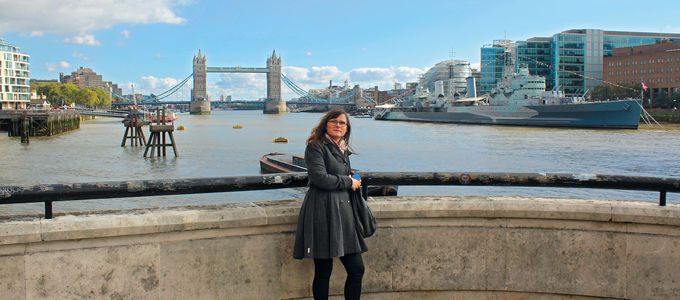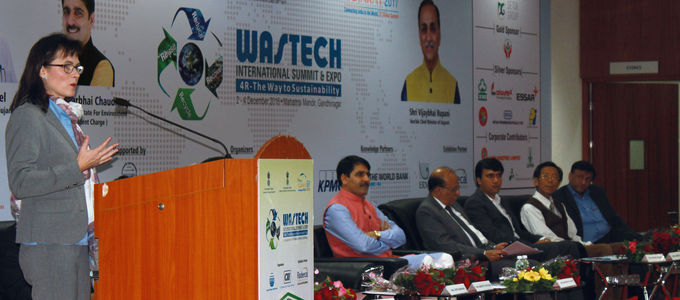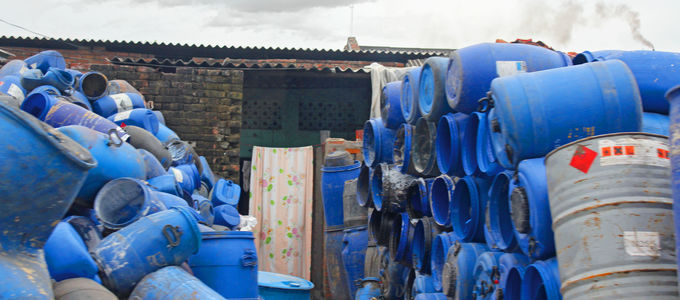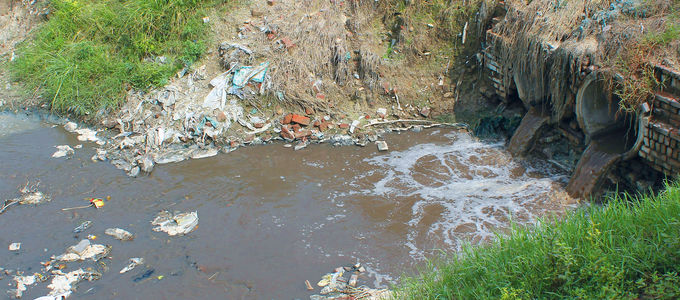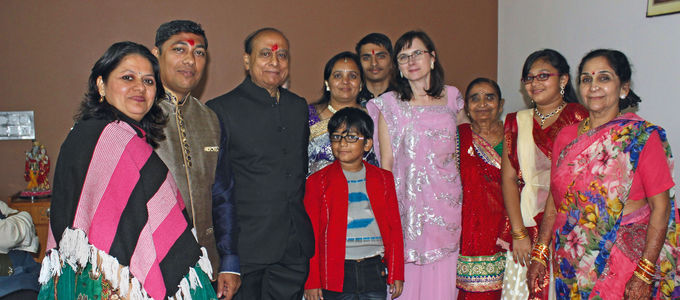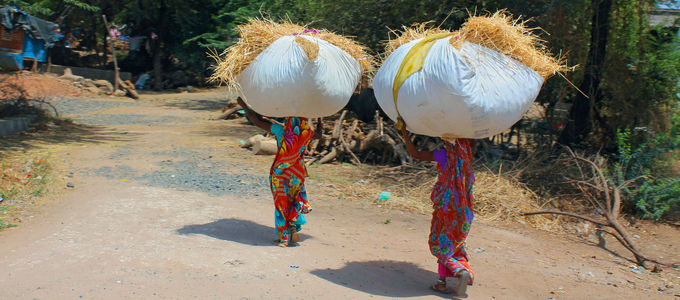Her mission: protecting the people and the environment
It is Brigitte Zietlow’s job to travel to emerging countries to improve the living and working conditions of the people there. We can all support her by making wiser choices when we go shopping.
She is passionate about her job. Brigitte wants to make a difference. Not just anywhere, but there where clothing and shoes are produced for the European market. An increasing proportion is being produced in emerging countries, particularly in India, where leather is tanned under almost indescribable conditions. Rivers sometimes have a pink or a blue tinge to them, depending on the chemicals being used and the colours currently in fashion.
“God had his hand in this”
Born into a New Apostolic family in the former East Germany, Brigitte found herself on the fringes of society. She did not join any of the East German youth movements ran by the Socialist government. Despite her excellent academic performance, her application for a position as a laboratory technician in the chemical industry was rejected. But then a young teacher took over the class Brigitte was in. In Brigitte she saw a young woman with great potential: “Gitti, you have to do your matric,” she told her.
After graduating from high school, Brigitte was not admitted to university in Berlin. The only college that would admit her was in Chemnitz, in the field of garment and leather technology. The Berlin Wall fell, Brigitte finished her studies, and kept herself afloat with various jobs. But then she came across a job posting by the German Federal Environmental Agency (UBA).
The agency was looking for an expert in garment and leather technology. Brigitte was the only candidate to apply from outside of the agency and got the job in Dessau. “They hired me despite my total lack of insider knowledge.” Even today she is still amazed. And she is convinced, “God had a hand in this.”
After two near accidents on her commute she began to look for an apartment in Dessau, and found one. Two or three nights a week she stays in Dessau. She is often on the phone with her husband and her daughters. “We probably talked more than we ever did at home,” she says with a smile.
Her job is to mediate
As an employee of the German Federal Environmental Agency she has become a bit of a globetrotter. She is in India three to four times a year for one to three weeks at a time and tries to pass on her know-how and reach the people involved and bring them on board: the authorities, the textile manufacturers, and the people who live there.
India has very ambitious environmental standards, she explains, but the countrywide implementation and, above all, the monitoring of legal limits is very complex. Manipulating the measuring instruments or simply noting down when permissible limits are exceeded is of no use if nothing is done about it. And this is how polluted water is channelled from tanneries on to nearby farmland, seeps into the ground, and ends up in the food cycle.
That is why it is so important to create acceptance for the application of standards, and to convince people. People’s awareness with respect to environmentally hazardous substances is growing, although slowly. The strict hierarchy and caste system are factors that slow down the implementation of changes considerably. “There are countless production facilities, but very few staff in administration and civil service.”
Our throw-away culture
““So far there is no exchange of information between the parties concerned.” Her role as mediator is therefore not easy. “In India, too few women hold management positions. The only way you can score points is with high level expertise and a professional approach,” she says. “And you have to be able to take a lot,” she adds.
And then she tells me about regions where waste from tanneries is stored in the open. “You see workers standing barefoot in the toxic brew or reaching into the chemical barrels with their bare hands. Children play on the waste dumps.” There are even people who live between chemical drums. She tells me about textile factories in which it is unbearably hot. “Hotter than outside—and temperatures there already reach 50 degrees Celsius.”
Asked whether her professional experience influences her own consumer choices, she responds, “I obviously also buy clothes,” Brigitte Zietlow says and smiles, “… and not only organic or eco-friendly.” But people’s awareness is beginning to change.
The problem is mass consumerism: the merchandise is regarded as throwaway products. The low prices suggest that the garment has virtually no value. “Things that don’t fit are not even returned, people just throw them away,” and destroy the work of those who made the garments at the cost of their own health and that of their families. More than forty percent of the clothes purchased are never worn. “I wish for my part that many people do not only know about this, but that they develop a little empathy for the people in these countries.”
Article info
Author:
Date:
Keywords:
Jens Lange,
Andreas Rother
26.02.2019
India,
Social commitment,
International


